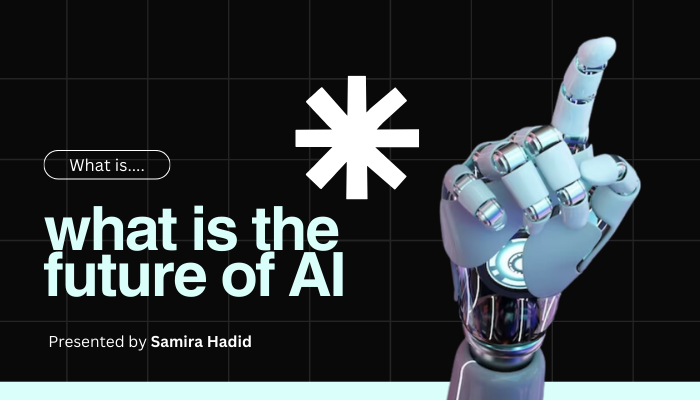Artificial Intelligence (AI) has already revolutionized many sectors and aspects of daily life in recent years. However, what does AI’s future hold? This article examines the possible developments, difficulties, and effects of artificial intelligence in the ensuing decades.
An Overview of AI and Its Present Situation
The term artificial intelligence, or AI for short, describes the imitation of human intelligence in computers that have been designed to think and behave like people. Natural language processing, robotics, machine learning, and other technologies are examples of AI technologies. AI is currently utilized in many industries, including healthcare, banking, entertainment, and transportation.
The Development of Artificial Intelligence
Early algorithms and computational theories were developed in the middle of the 20th century, marking the beginning of AI’s development.
Current Progress
AI has made amazing strides in deep learning, neural networks, and advanced robotics in recent years. Artificial Intelligence has the ability to transform a multitude of industries, as seen by innovations such as virtual assistants, self-driving cars, and enhanced data analytics.Future Projections for AI-Enhanced Machine Learning Capabilities.
Future developments in machine learning will probably result in more complex algorithms that can handle enormous volumes of data more accurately. AI will be able to make more accurate judgments and predictions because to these advancements.
AI’s future will be greatly influenced by edge computing and the Internet of Things (IoT). By combining AI with IoT devices, real-time data processing and edge decision-making will be improved, resulting in more responsive and effective.
Job Creation and Displacement
AI will surely result in employment losses in some industries, but it will also open up new business prospects. Retraining and upskilling the labor force will be essential to adjusting to the shifting nature of employment.
Robots Working Together and Human-AI Communication
Cobots, or collaborative robots, will be used by humans more and more in the future. Improving communication between humans and AI will be essential to ensuring smooth cooperation and raising output.
AI and Worldwide Issues
AI has the potential to be extremely important in solving global issues like climate change. AI-powered systems can enhance environmental monitoring and conservation initiatives, optimize energy use, and lower emissions.
Continuous Education and Talent Advancement
AI will encourage continual skill improvement and lifetime learning, helping people to remain relevant in a labor market that is changing quickly. AI-powered systems will provide individualized learning programs and chances for upskilling.
Frameworks for Regulation and Governance
To guarantee responsible AI use, ethical standards and guidelines for AI development and use must be established. To create strong regulatory frameworks, legislators and business executives must work together.
Global Collaboration
In order to handle the worldwide ramifications of AI, international cooperation will be crucial. While reducing possible hazards, collaborative initiatives can support the ethical development and application of AI.
